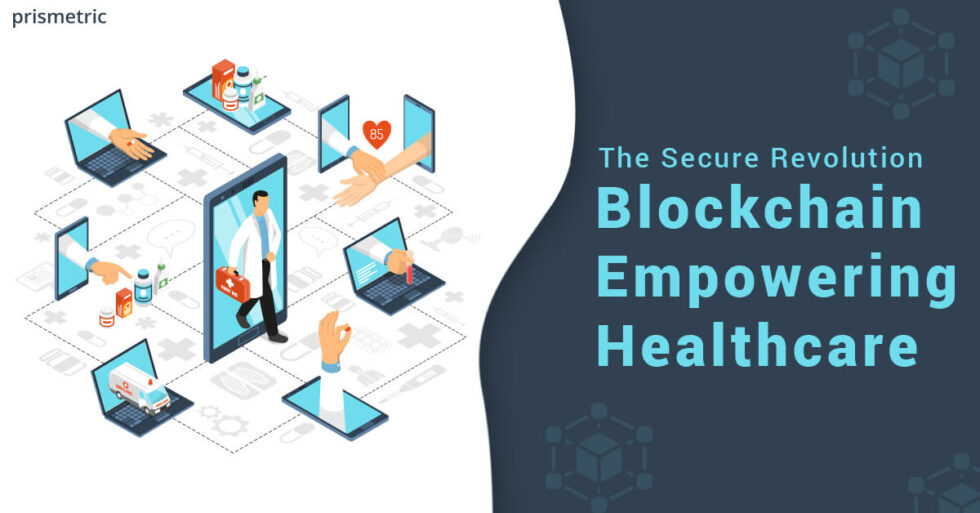
In the beginning, blockchain was synonymous with Bitcoin. Today, it’s a technological force sweeping across industries, leaving behind a trail of innovation, disruption, and opportunity. From high-stakes finance to life-saving healthcare, blockchain is no longer just a buzzword—it’s a transformative infrastructure.
The technology that once powered only cryptocurrency is now redefining how we store data, transfer assets, and build trust in digital interactions. In this article, we’ll break down how blockchain is reshaping major sectors, with a focus on real-world use cases, challenges, and what the future may hold.
Finance: Blockchain’s First Playground
No industry has felt the impact of blockchain more immediately and significantly than finance. In fact, blockchain’s initial use case—peer-to-peer digital cash—was designed to directly challenge traditional financial systems.
But the transformation didn’t stop with Bitcoin.
Decentralized Finance (DeFi) has emerged as an ecosystem of platforms that allow users to lend, borrow, trade, and earn interest without the need for banks or intermediaries. Platforms like Aave, Compound, and Uniswap have proven that financial services can be transparent, automated, and global.
Major banks and institutions are also embracing blockchain. JP Morgan’s Onyx platform is a prime example of blockchain being used for interbank settlements and tokenized assets. Meanwhile, central bank digital currencies (CBDCs) are in development or pilot stages in over 100 countries, signaling a profound shift in how governments approach monetary systems.
Key Benefits in Finance:
- Real-time settlement and reduced transaction costs
- Increased transparency and auditability
- Enhanced cross-border payment efficiency
Healthcare: Data Integrity Meets Privacy
Few sectors depend more on secure, tamper-proof records than healthcare—and that’s exactly where blockchain shines.
Electronic Health Records (EHRs) are often siloed, inaccessible across institutions, and vulnerable to breaches. Blockchain can fix this by creating decentralized medical data systems that give patients control over their own records, while allowing doctors to access real-time, verifiable information.
Projects like MediLedger and BurstIQ are already demonstrating how blockchain can improve drug traceability, clinical trials, and health data sharing—all while complying with data privacy regulations like HIPAA and GDPR.
In the fight against counterfeit pharmaceuticals, blockchain is a game-changer. Using distributed ledger technology, pharmaceutical companies can track every point in the supply chain, ensuring the authenticity and safety of medications from manufacturing to the pharmacy shelf.
Key Benefits in Healthcare:
- Secure, patient-owned medical records
- Transparent pharmaceutical supply chains
- Improved interoperability between health providers
Supply Chain: Transparency at Every Step
In a globalized world, supply chains are complex, often opaque, and prone to fraud. Blockchain introduces traceability and accountability that legacy systems lack.
Major retailers like Walmart and Carrefour use blockchain to track food products from farm to shelf, allowing them to pinpoint the source of contamination within seconds. Meanwhile, shipping giants like Maersk are leveraging blockchain to digitize the notoriously paper-heavy world of logistics.
Blockchain enables every participant in a supply chain—manufacturers, suppliers, transporters, retailers—to record actions on an immutable ledger. This creates a single source of truth that reduces fraud, streamlines recalls, and builds consumer trust.
Key Benefits in Supply Chain:
- End-to-end traceability of goods
- Faster, more accurate recalls
- Reduced fraud and counterfeit goods
Real Estate: From Paperwork to Tokens
Real estate transactions are famously slow, costly, and buried under paperwork. Blockchain offers a solution in the form of tokenization, smart contracts, and digital land registries.
Tokenization allows property to be fractionalized, meaning investors can own a portion of a real estate asset—opening the door to new levels of accessibility and liquidity. Smart contracts can automate payments, title transfers, and even rent collection, reducing dependency on middlemen and minimizing human error.
Countries like Sweden and Georgia are already piloting blockchain-based land registries, making property records transparent, verifiable, and harder to tamper with.
Key Benefits in Real Estate:
- Streamlined transactions and lower costs
- Greater liquidity through tokenized ownership
- Tamper-proof property records
Energy: Powering the Future with Decentralization
The energy sector is embracing blockchain to decentralize energy production and trading. With the rise of renewable sources like solar and wind, individuals are becoming “prosumers”—both producers and consumers of energy.
Blockchain allows these prosumers to trade energy directly with one another on peer-to-peer energy grids, using smart contracts to ensure fair pricing and delivery. Platforms like Power Ledger and LO3 Energy have pioneered blockchain-based marketplaces for local energy trading.
Furthermore, blockchain enables better tracking of carbon credits and renewable energy certificates, enhancing transparency in sustainability reporting.
Key Benefits in Energy:
- Peer-to-peer energy trading
- Real-time grid balancing
- Transparent carbon credit markets
Legal & Identity Management: Code as Law
Blockchain is also starting to redefine how legal agreements and identity verification are handled.
Smart contracts are digital agreements that self-execute when predefined conditions are met. They are increasingly used in areas like escrow services, employment contracts, and digital rights management. Platforms such as Ethereum and Tezos offer robust environments for building legally binding agreements into code.
Identity, too, is being reimagined. Traditional KYC (Know Your Customer) systems are expensive and repetitive. Decentralized identity (DID) solutions like Civic, uPort, and Microsoft’s ION are enabling users to control their digital identities and share only the necessary data with service providers.
Key Benefits in Legal and Identity:
- Automated, trustless execution of contracts
- Reduced legal overhead
- Greater control over personal data
The Challenges: Adoption, Regulation, and Integration
Despite its promise, blockchain faces hurdles on the road to mass adoption:
- Scalability remains a challenge for many blockchains, especially Layer 1 networks like Bitcoin and Ethereum, though Layer 2 solutions are improving throughput.
- Regulatory uncertainty continues to stall innovation, particularly in regions where lawmakers struggle to define digital assets.
- Integration with legacy systems is often complex, requiring time, capital, and technical know-how.
However, the pace of experimentation and deployment suggests that these obstacles are being tackled head-on. As standards develop and infrastructure matures, blockchain is poised to become as foundational as the internet itself.
Final Thoughts: A Technology Beyond the Hype
From banking to biotech, blockchain is proving that it’s more than a platform for cryptocurrencies—it’s a framework for trust, automation, and decentralization across countless applications.
We are still in the early innings of this transformation. Yet one thing is clear: as industries race to digitize, decentralize, and secure their operations, blockchain will be at the center of that shift.
So whether you’re a tech enthusiast, investor, policymaker, or entrepreneur, it’s time to stop thinking of blockchain as just a tool—and start seeing it as an infrastructure for the digital age.

A cybersecurity specialist with a passion for blockchain technology, Irene L. Rodriguez focuses on the intersection of privacy, security, and decentralized networks. Her writing empowers readers to navigate the crypto world safely, covering everything from wallet security to protocol vulnerabilities. Irene also consults for several blockchain security firms.




